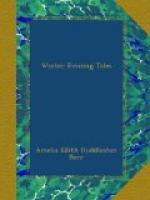It was on Thursday, August 23, 1832, that the first solemn pledge of total abstinence was taken. That afternoon Joseph Livesey, pondering the matter in his mind, saw John King pass his shop. He asked him to come in and talk the subject over with him. Before they parted Livesey asked King if he would join him in a pledge to abstain forever from all liquors; and King said he would. Livesey then wrote out a form and, laying it before King, said: “Thee sign it first, lad.” King signed it, Livesey followed him, and the two men clasped hands and stood pledged to one of the greatest works humanity has ever undertaken.
A special meeting was then called, and after a stormy debate, the main part of the audience left, a small number remaining to continue the argument. But the end of it was that seven men came forward and drew up and signed the following document, which is still preserved:
“We agree to abstain
from all liquors of an intoxicating quality,
whether they be ale,
porter, wine or ardent spirits, except as
medicine.
“JOHN GRATREX,
EDWARD DICKINSON,
JOHN BROADBENT,
JNO. SMITH,
JOSEPH LIVESEY,
DAVID ANDERTON,
JNO. KING.”
All these reformers were virtually working men, though most of them rose to positions of respect and affluence. Still the humility of the origin of the movement was long a source of contempt, and its members, within my own recollection, had the stigma of vulgarity almost in right of their convictions.
But God takes hands with good men’s efforts, and the cause prospered just where it was most needed—among the operatives and “the common people.” One of these latter, a hawker of fish, called Richard Turner, stood, in a very amusing and unexpected way, sponsor for the society. Richard was fluent of speech, and, if his language was the broadest patois, it was, nevertheless, of the most convincing character. He always spoke well, and, if authorized words failed him, readily coined what he needed. One night while making a very fervent speech, he said: “No half-way measures here. Nothing but the te-te total will do.”
Mr. Livesey at once seized the word, and, rising, proposed it as the name of the society. The proposition was received with enthusiastic cheering, and these “root and branch” temperance men were thenceforward known as teetotalers. Richard remained all his life a sturdy advocate of the cause, and when he died, in 1846, I made one of the hundreds and thousands that crowded the streets of the beautiful town of Preston and followed him to his grave. The stone above it chronicles shortly his name and death, and the fact that he was the author of a word known now wherever Christianity and civilization are known.
MARGARET SINCLAIR’S SILENT MONEY.
“It was ma luck, Sinclair, an’ I couldna win by it.”




